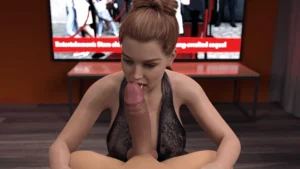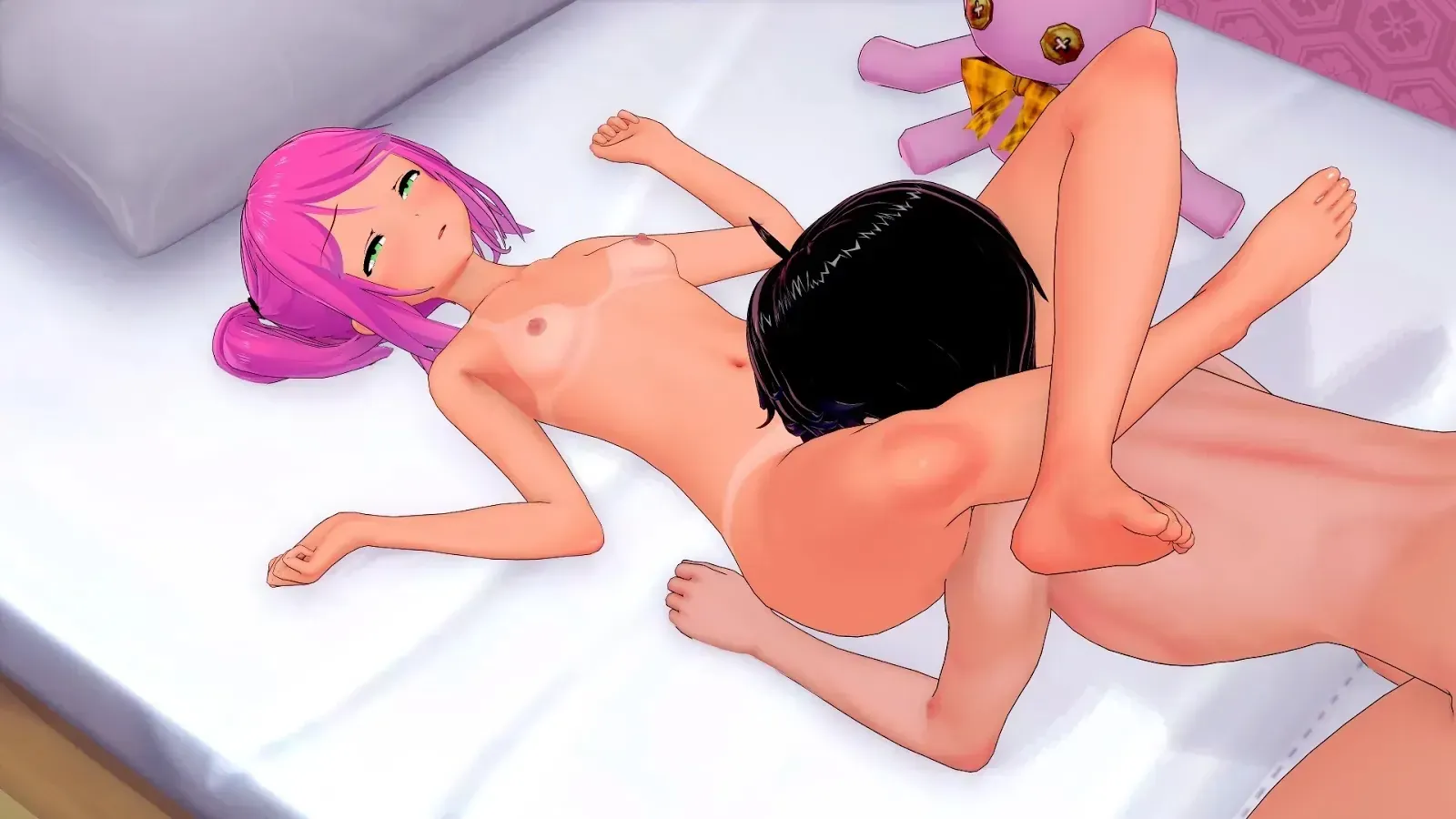
Play Adverse Effects
Adverse Effects review
An In-Depth Look at the Psychological and Relational Consequences
The ‘Adverse Effects’ porn game has gained attention for its immersive and explicit content, but many players have reported significant psychological and relational impacts after engaging with it. This article explores the main adverse effects associated with the game, drawing from personal anecdotes and research on similar interactive adult content. Whether you are a player or simply curious, understanding these effects can help you navigate the complex emotional and social terrain that this game may provoke.
Understanding the Psychological Impact of ‘Adverse Effects’ Porn Game
You’ve probably heard the buzz about the ‘Adverse Effects’ game. Maybe you’ve even played it yourself. While the immediate allure is its interactive nature, many are starting to ask a tougher question: what’s the real cost of playing? 🧠 This chapter dives deep into the psychological effects of the Adverse Effects game, moving beyond the surface to explore how this interactive experience can genuinely reshape a player’s emotional landscape. We’re not just talking about a fleeting feeling; we’re talking about measurable changes in mood, brain chemistry, and overall well-being.
The conversation around the emotional impact of porn games is often oversimplified. It’s crucial to understand that ‘Adverse Effects’ isn’t passive media; it’s a demanding, choice-driven experience that requires constant engagement. This interactivity is what sets it apart and, arguably, what makes its potential consequences more significant. Let’s unpack what’s really happening.
How the Game Influences Emotional Well-Being
For many, the initial draw of ‘Adverse Effects’ is an escape—a powerful, immersive world. But what happens when you log off? 😥 A common thread among players is a phenomenon often described as a “crash.” The high-stimulation virtual world is replaced by the comparatively mundane real world, leading to feelings of agitation, emptiness, or flat-out frustration.
This isn’t just boredom; it can feel like a genuine emotional withdrawal. Players report a dulled response to everyday pleasures. Hanging out with friends, enjoying a hobby, or even a good meal might not register with the same intensity it once did. The game’s intense universe can inadvertently set a new, incredibly high bar for emotional stimulation that real life struggles to meet.
This can lead directly to gaming-induced mood changes. A player might start a session feeling fine but end it feeling irritable or anxious. Conversely, they might feel a compelling need to play specifically to alleviate feelings of stress or sadness, creating a cyclical dependency. The game becomes the primary tool for emotional regulation, which is a precarious position for any single activity to hold.
Key Insight: The interactivity demands your emotional investment. You’re not just watching outcomes; you’re responsible for them. This can lead to a deeper psychological imprint than passive viewing.
I spoke with one player, Mark, who shared his experience. “After a long session of ‘Adverse Effects,’ I’d find myself snapping at my partner over tiny things. The smallest inconvenience felt massive. I was so used to the game’s immediate feedback loops and controlled chaos that normal, unpredictable life became incredibly frustrating. It took me a while to connect my emotional withdrawal porn game sessions were the cause.”
Neurological Responses to Interactive Adult Content
To truly grasp the psychological effects of the Adverse Effects game, we have to look under the hood—at the brain itself. 🧪 The key player here is dopamine, the neurotransmitter central to our reward, motivation, and pleasure systems.
The interactive adult content neurological effects are profound because the game is designed to deliver unpredictable rewards. You make a choice, and you might get a highly stimulating outcome. This “variable ratio reinforcement schedule” is the most powerful driver of habitual behavior. It’s the same mechanism used in slot machines. Your brain learns that another click, another decision might deliver the big reward, so it compels you to keep going.
Over time, this can lead to dopamine changes in adult game players. The brain, constantly flooded with high levels of dopamine from the game, starts to adapt. It may downregulate dopamine receptors or reduce natural production to achieve balance. This neural adaptation means you need more stimulation (i.e., more or longer gameplay) to achieve the same level of satisfaction, a state known as tolerance.
The downstream effect is desensitization. Activities that used to provide a healthy dopamine release—like exercise, conversation, or enjoying music—may feel lackluster. The brain’s reward circuit has been recalibrated by the supernormal stimuli of the game. This is a core reason behind the flatness and lack of motivation players report when not playing.
| Reported Emotional Effect | Linked Neurological Response |
|---|---|
| Irritability & Frustration when not playing | Dopamine deficit state following a session of heightened stimulation |
| Feeling “Numb” or Unmotivated | Downregulation of dopamine receptors, leading to general anhedonia |
| Intense Cravings to Play | Conditioned response in the brain’s reward pathway seeking predictable stimulation |
| Anxiety or Restlessness | Overactivation of the amygdala and disruption of the prefrontal cortex from constant high arousal |
Personal Stories: Players’ Experiences with Psychological Effects
Hearing from those who have lived it provides the most compelling evidence of the emotional impact of porn games. These player experiences Adverse Effects game stories highlight the very real human element behind the neuroscience. 🙏
Sarah’s Story: The Anxiety Spiral
Sarah described herself as a casual gamer who started playing ‘Adverse Effects’ during a stressful period at work. “It was the perfect distraction. But then, the distraction started needing its own distraction. I’d plan my evenings around playing. If something interrupted that, I’d get seriously anxious—heart racing, couldn’t focus on anything else. The game stopped being an escape and became a source of stress itself. I wasn’t playing to feel good; I was playing to avoid feeling bad, which is a scary place to be.”
Alex’s Story: Altered Perception
Alex shared how the game impacted his relationship. “The biggest thing was the comparison. The game presents these idealized, fantasy interactions. I didn’t even realize it, but I started becoming critical and dissatisfied with my real, healthy relationship. My expectations were completely warped. It created a distance between me and my partner because I was living in this other world in my head. It took a conscious effort to detox and reset my expectations to reality.”
These stories underscore a critical point: the impact isn’t confined to the hours spent playing. It leaks into everyday life, affecting mood, relationships, and self-perception. Recognizing these patterns is the first and most crucial step toward mitigating them.
If you see your own experiences reflected here, know that it’s possible to recalibrate. 🛠️ Here’s some actionable advice:
- Track Your Mood: Keep a simple log. Note how you feel before you play, immediately after, and a few hours later. Patterns of gaming-induced mood changes will become clear.
- Create Digital Boundaries: Use app timers or schedule specific, limited play times. This helps break the cycle of compulsive play.
- Reinvest in Offline Joy: Actively schedule activities you used to enjoy—even if they feel dull at first. You are retraining your brain’s reward system.
- Talk About It: Sharing these feelings with a trusted friend or a professional can reduce shame and provide crucial support. You are not alone in this.
Understanding the psychological effects of the Adverse Effects game empowers you to make informed choices. It’s not about condemnation; it’s about awareness. By recognizing the potent blend of interactivity and neurology at play, you can take back control and ensure your gaming habits remain a source of entertainment, not a detriment to your emotional health.
The ‘Adverse Effects’ porn game can have profound psychological and emotional consequences for its players, ranging from altered brain chemistry to challenges in real-life relationships. Personal experiences reveal that the immersive nature of the game intensifies these impacts, making awareness and moderation essential. If you or someone you know is affected, seeking support and reflecting on gameplay habits can help restore balance and well-being.





















